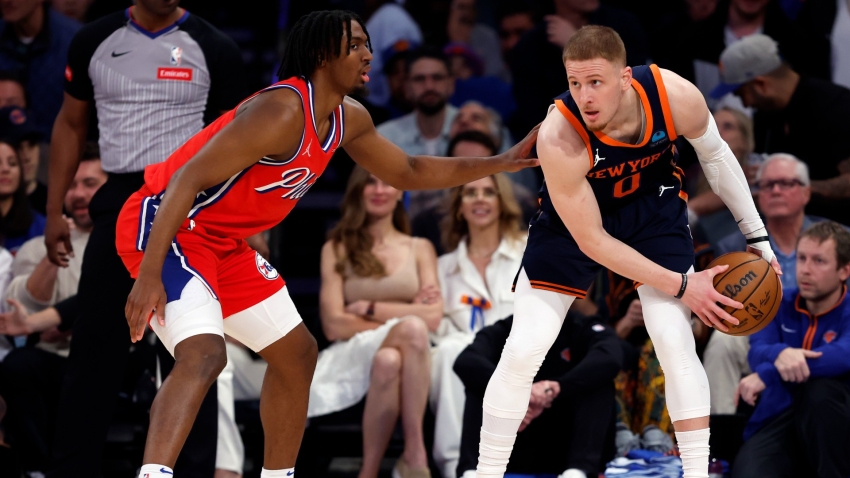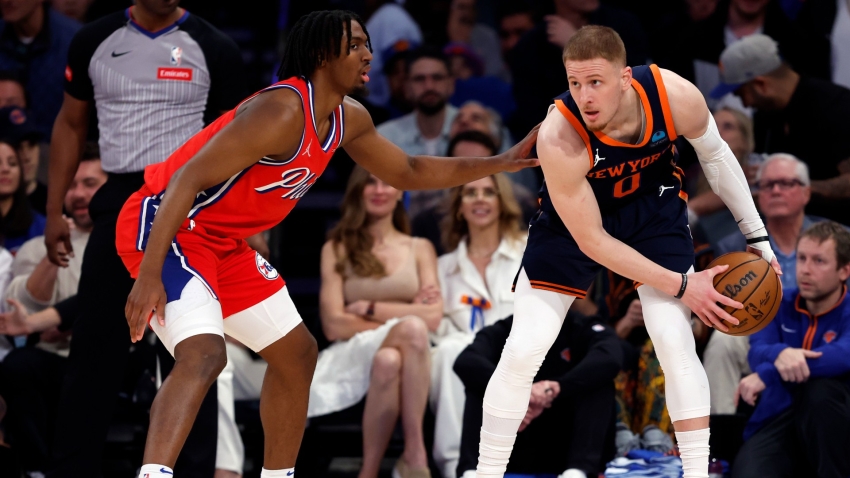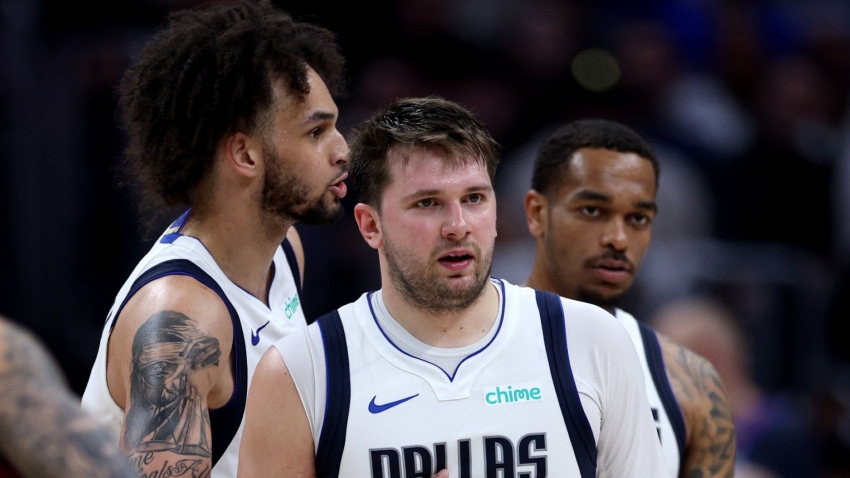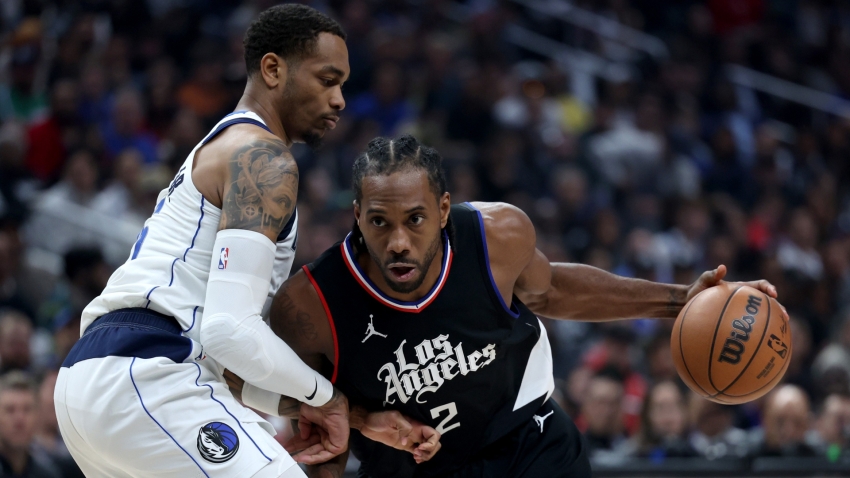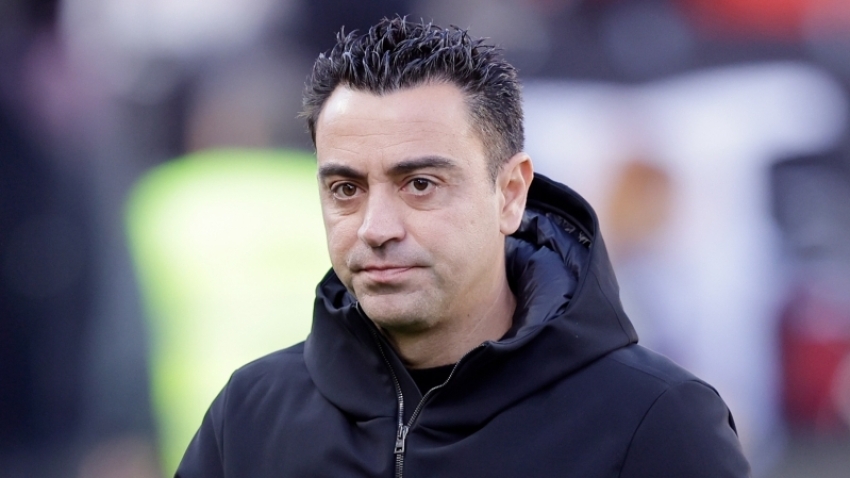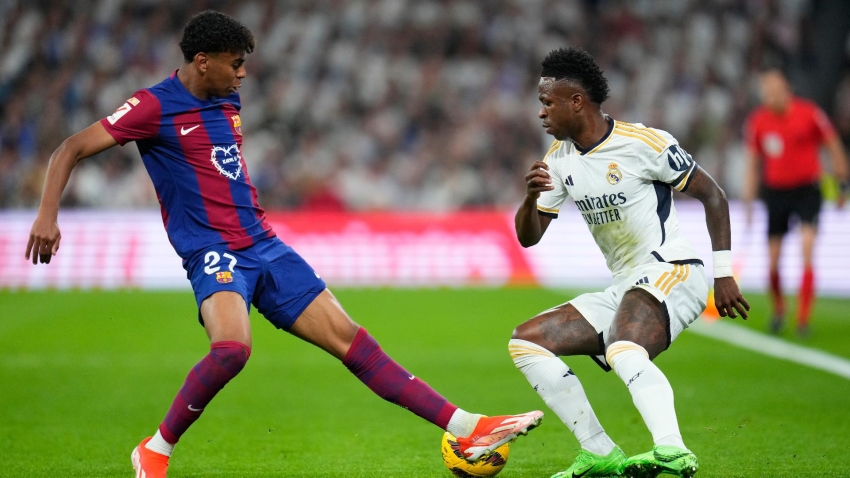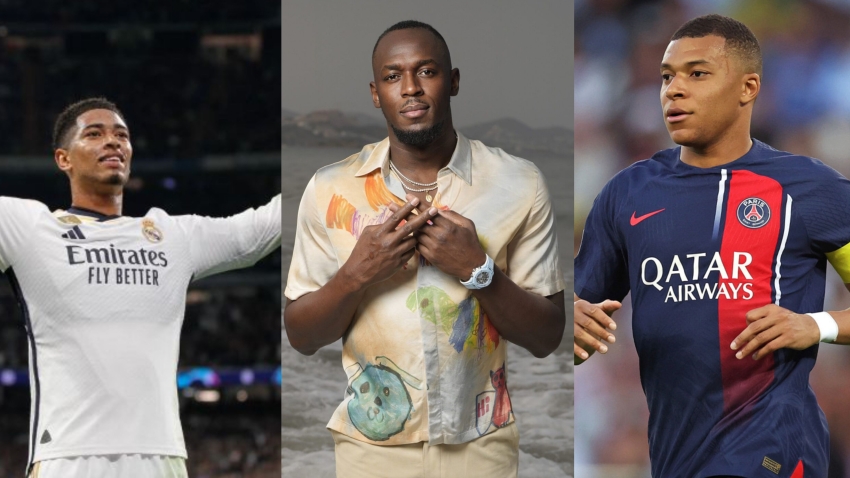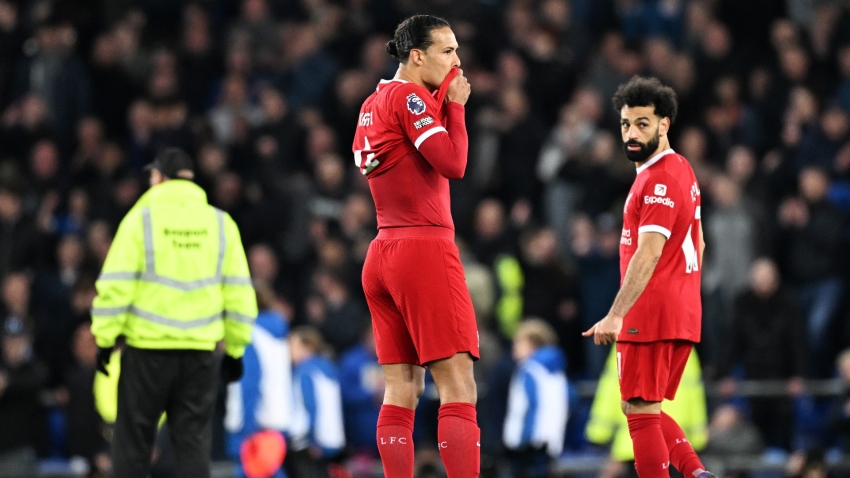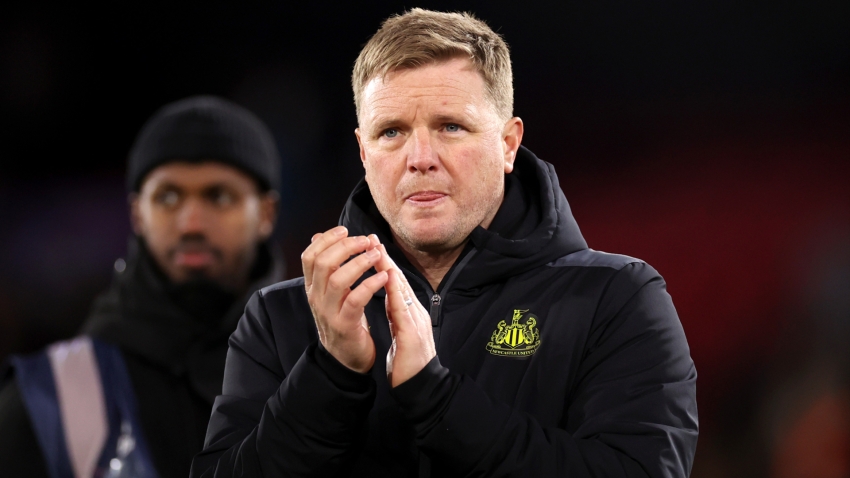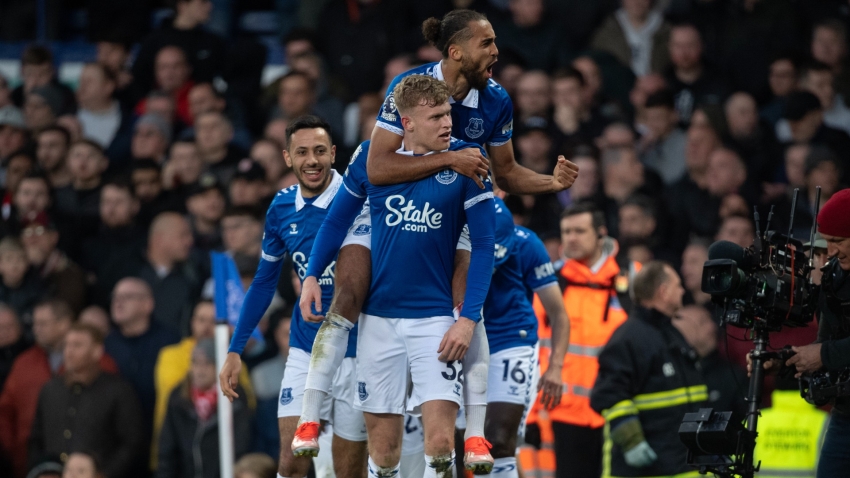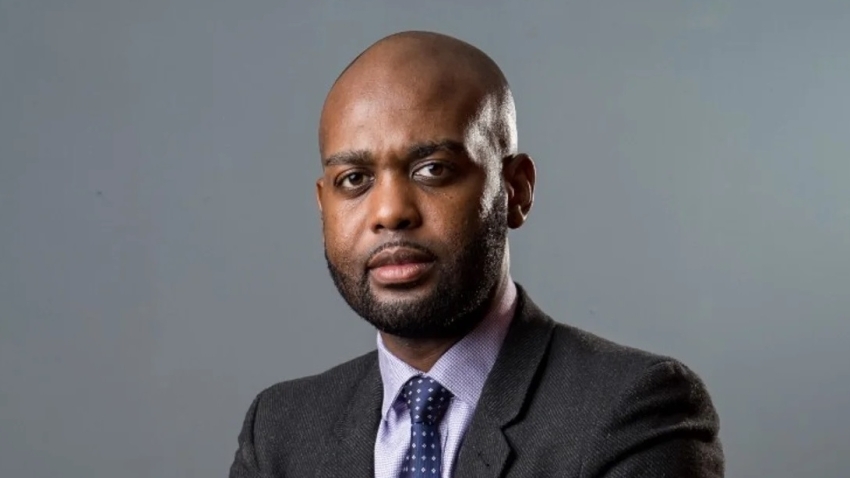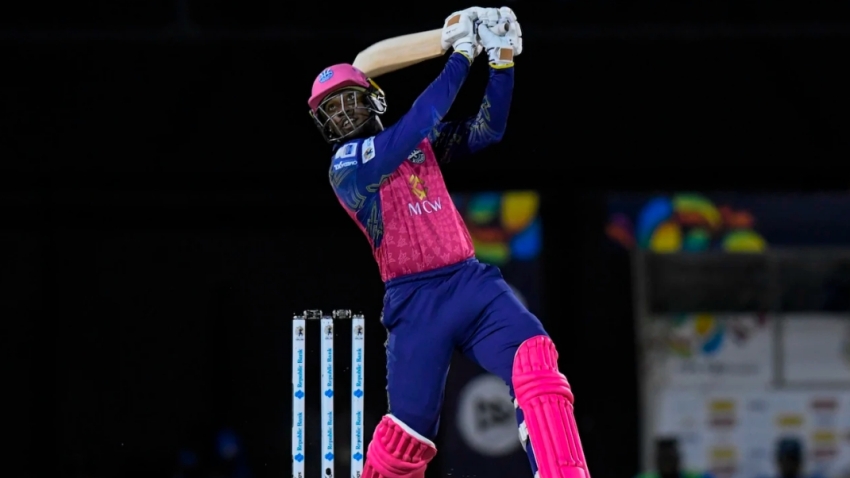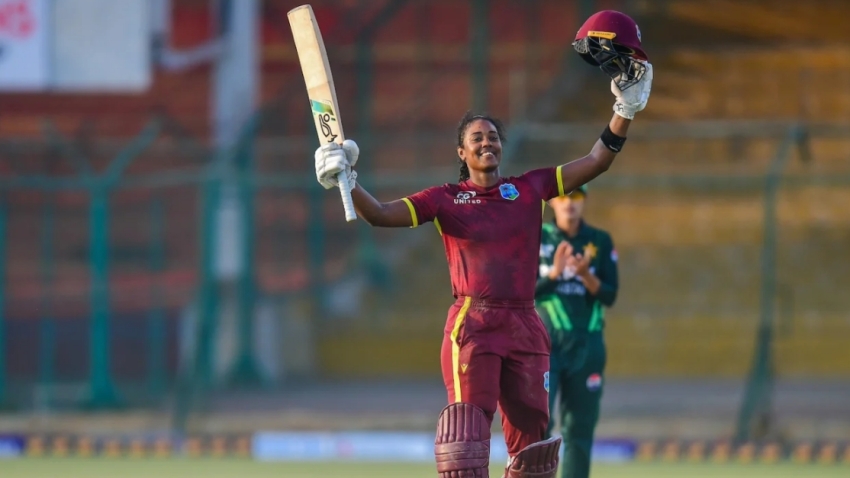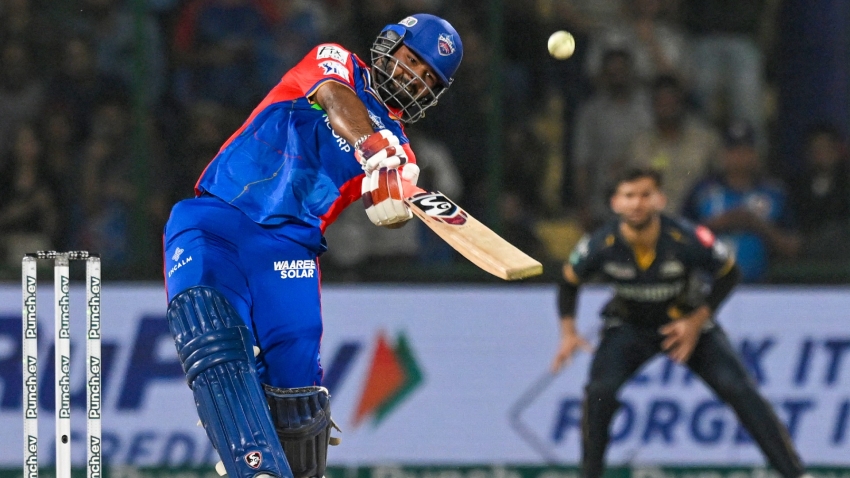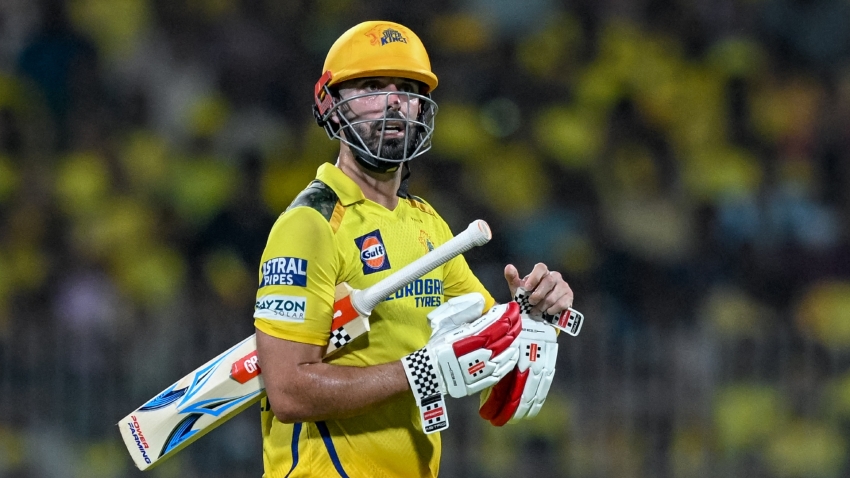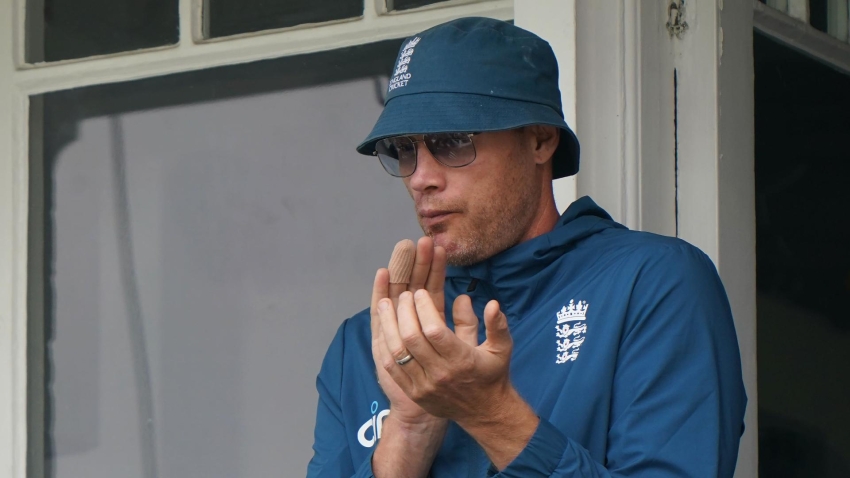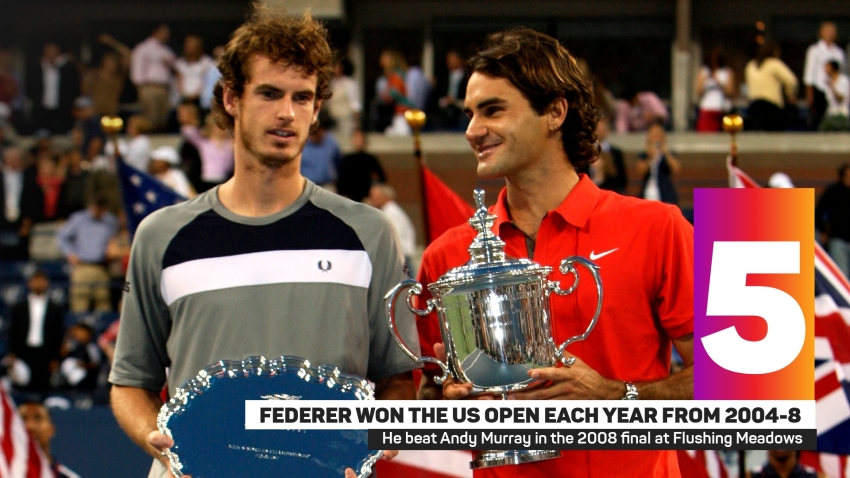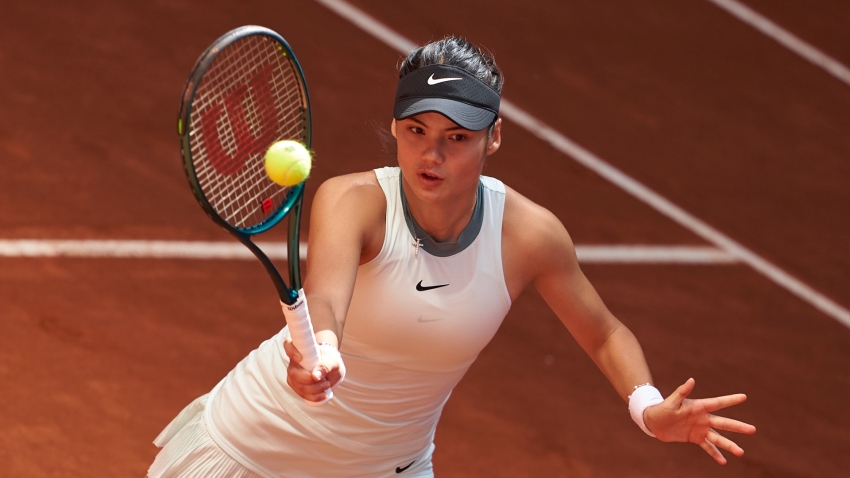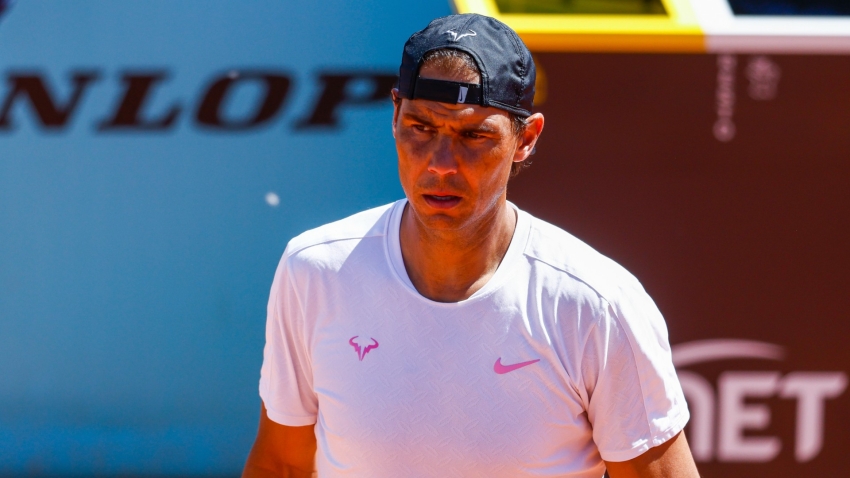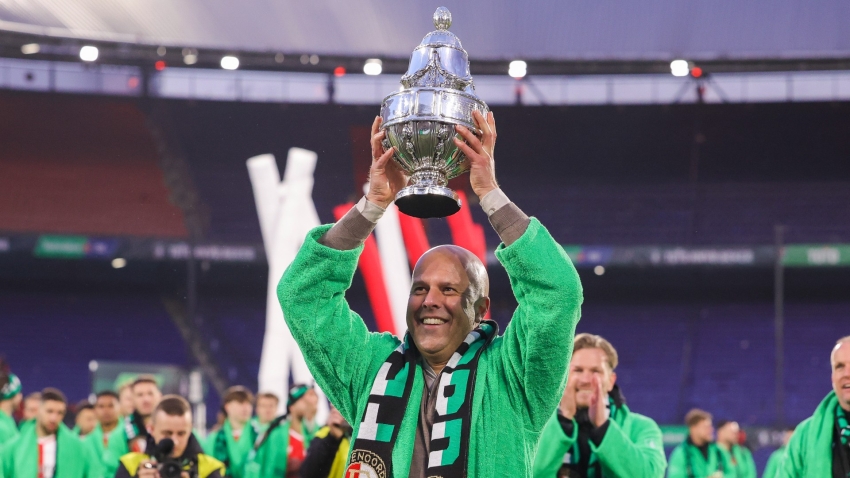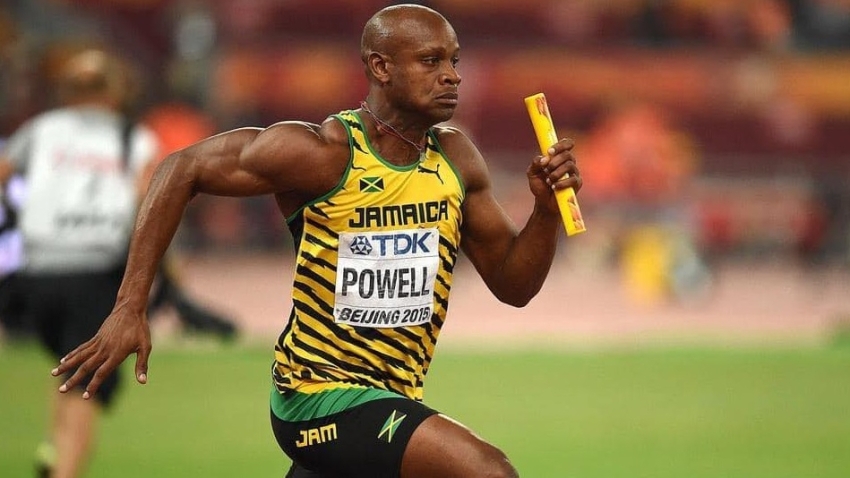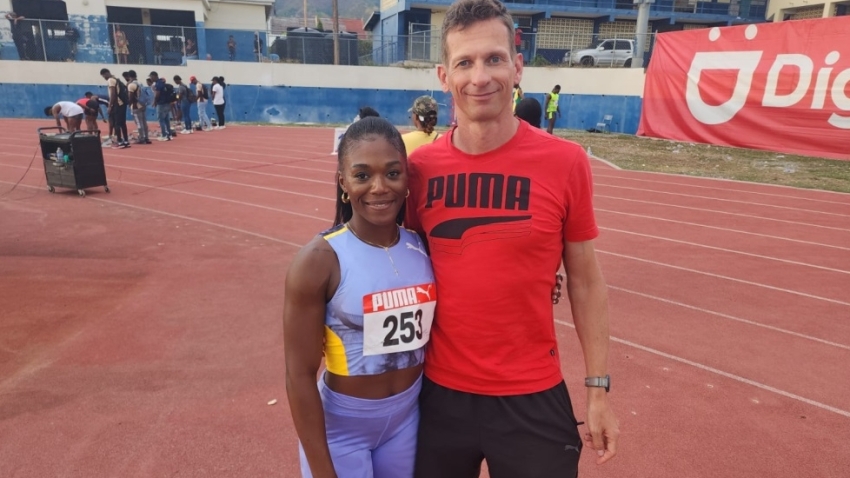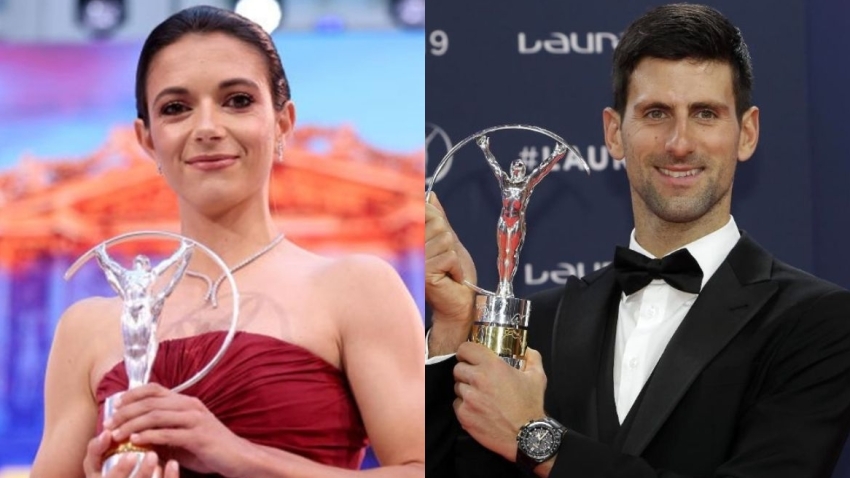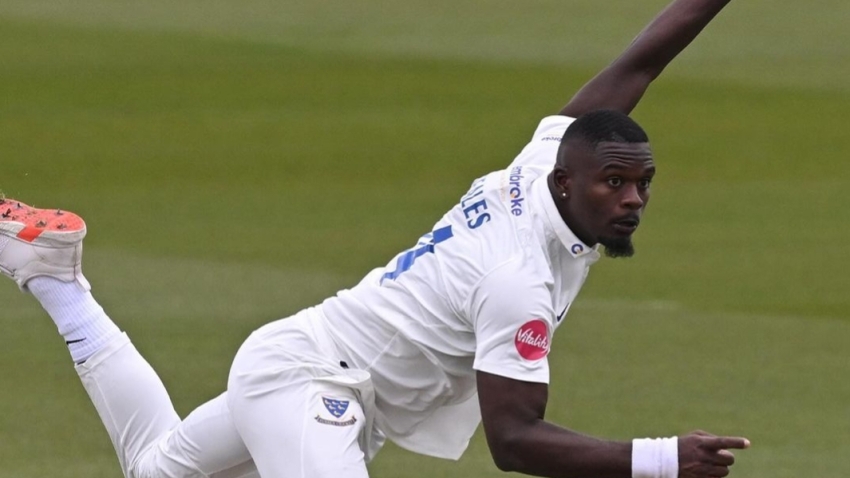With a security detail to rival that of a president, Roger Federer strode along St Mary's Walk and into Court 14, crowds on the concourses urged to clear a path for a man rarely seen in such parts of the All England Club.
This was the king among his people, out in the boondocks by his standards. With a mighty swish of his racket, he might just be able to launch a tennis ball onto Centre Court's roof from down here.
It was day two of the 2015 Wimbledon championships, a warm Tuesday morning, and Federer needed a warm-up before his opening match against Bosnian Damir Dzumhur, a player that later in the day he would trounce for the loss of just seven games. That would of course be a Centre Court assignment. Invariably all of Federer's matches get centre stage.
The tiny Court 14 seats a couple of hundred spectators, maybe a handful more at a push, and whispers had spread to mean many were occupied for what was an unadvertised practice session, a Federer guerrilla gig. The media had been given a little advance notice, and a glimpse of Federer at close quarters is hard to turn down.
There was a hefty hint Federer would be arriving when Stefan Edberg - his coach and childhood idol - showed up several minutes ahead of his charge and began to limber up, while Rob Walker of Wimbledon TV stood patiently with a camera crew and a stack of notes, ready to tell the story of the day Federer played where only mere mortals usually tread.
Suddenly more news crews appeared, a stream of day-trippers strolling past the inconspicuous court became more like a scrum, and out came the camera phones, ball boys and ball girls craning for a view, making sure of a close-up shot. A woman working for IBM grinned ear to ear. And in walked Federer, dressed head to toe in white Nike gear, carrying a couple of Wilson tennis rackets and a cap bearing his RF insignia.
A G4S security man practically bit off his bottom lip while attempting to keep a straight face and simultaneously enforce crowd control as Federer passed by him. Thou shalt not smile.
Applause rang out, fans with cheap-rate ground passes cooed at the sight of the then seven-time champion. Federer acknowledged the swelling crowd.
And for the next half-hour or so he and Edberg gently put in a light session, rallying from the baseline, these great champions going through the motions that on another day might have taken place out of public sight. It amounted to little more than a balm to the ego before lunch.
And this was just another day in the life of Roger Federer, who has now announced his retirement. He has probably forgotten all about it. Some will remember it for the rest of their lives.
Edberg takes on a real relevance in the story of Federer's retirement because they spoke together about how to go through the process.
Swedish great Edberg announced his own decision to quit in December 1995, a month before his 30th birthday, and the 1996 season became his farewell tour, feted everywhere he went.
But Edberg struggled with his form in that year of goodbyes and glad-handing, reaching only one final, losing to Boris Becker in the Queen's Club title match, and he ultimately regretted the hoopla that followed him around.
Speaking to The Tennis Podcast in 2020, Edberg explained how he warded Federer off following his example.
"We actually talked a little bit about it and I would not recommend it to anybody actually, even if it's a nice thing to do, because it does put too much pressure on yourself and there would be too many things going on in your mind," Edberg said.
"So if you're going to announce it, I would do it just before my last tournament or have it in my mind, but not for anybody else to know. It's very tough to handle, but at the same time it was a very memorable year, but I would not recommend it."
Federer only worked in tight tandem with Edberg for two years, but he has so much respect and admiration for the man that such advice was sure to have registered.
And now the 20-time grand slam winner is retiring. Let that sink in.
It will take some getting used to, tennis without Federer. Without his ritual beastings of young upstarts on tour, without his perfect manners, quasi-aristocratic foibles, and those multilingual, exquisitely delivered, post-match news conferences. Without Anna Wintour gazing down adoringly from the Royal Box. Without Mirka.
"I wanted to be a tennis player or a soccer player from a very young age," Federer said at Wimbledon some years ago.
Was there a Wimbledon final that tilted him the way of tennis?
"I think the Becker-Edberg final. I don't remember which year because they played a few times. I was sitting at home in the living room, watching them play, thinking hopefully one day I can be like them, you know," Federer said.
Edberg and Becker met in consecutive Wimbledon finals from 1988 to 1990, the Swede winning the first and last of those matches. Theirs was a great rivalry.
"That's I guess where idols and inspirations are good. They push you forward," Federer said. "Then along the way you joke around and say it's coming closer. When you win a practice match, you just fake like you've just won Wimbledon. All of a sudden it's really happening."
It was "really happening" for Federer by the late 1990s, as he won the boys' singles at Wimbledon in 1998, beating Georgia's Irakli Labadze, and barely 12 months later he was a top 100 player on the men's tour.
But he was a firebrand too as a teenager, something he was compelled to explain at Wimbledon in 2001, when the 19-year-old Federer became the centre of attention for the first time after defeating Pete Sampras, champion for the previous four years, in the fourth round.
Federer had been a picture of composure in that match and was asked whether he modelled his approach on ice-cool Pistol Pete.
"Not at all actually. I was throwing around my racket like you probably don't imagine," Federer said. "I was getting kicked out of practice sessions non-stop when I was 16. Now since maybe I think this year, I started just to relax a little bit more on court.
"I'm not smashing as many rackets as before. I realised that the racket throwing didn't help my game because I was always getting very negative."
When Federer got his hands on a grand slam trophy for the first time, it was Wimbledon in 2003 and he was lobbed a prescient question by a reporter who asked whether he might one day emulate seven-time champion Sampras at Wimbledon.
"This is one of his seven, you know. I'm so far away," he said. "I'm just happy to be on the board. If I look at all the players who have won here, a lot have been idols to me. Just to be on the board with (Bjorn) Borg and these people, it's just nice to be a part of history at Wimbledon."
Nevertheless, that was the first of five consecutive Wimbledon triumphs for Federer, matching a Borg record. Around such feats are legends created; because of the vicarious pleasure he provided to so many, crowds will forever flock around Federer, whether on Centre Court, Court 14 or his local food court.
As Federer's slam stack grew, and he nudged nearer Sampras' hauls of seven Wimbledon titles and 14 majors, the American great made his Swiss successor a promise: he would be there when those records began to fall.
When Federer fended off Andy Roddick 16-14 in the fifth set of the 2009 Wimbledon final to go to 15 slams, Sampras indeed was there, albeit he arrived late.
"It was a bit special," Federer said. "When he walked in and I saw him for the first time, I did get more nervous actually. I said hello to him, too, which is unusual. But I thought, I don't want to be rude."
And in 2017, nudging 36, Federer triumphed at Wimbledon for an eighth and final time, beating an injury hampered Marin Cilic.
"Winning eight is not something you can ever aim for, in my opinion," he said afterwards. "If you do, you must have so much talent and parents and the coaches that push you from the age of three on, who think you're like a project," he said. "I was not that kid. I was just really a normal guy growing up in Basel, hoping to make a career on the tennis tour."
At the beginning of 2018, he added a sixth Australian Open title to reach 20 slam crowns, a figure beyond the wildest dream of anyone in men's tennis before the Big Three showed up.
The argument rages on about who has been the greatest men's tennis star of all-time, and whether it should be Federer, Novak Djokovic or Rafael Nadal from this era who is the prime contender for such a nebulous crown.
Federer has a losing head-to-head against both his younger rivals, there is no escaping that fact. He trails Nadal 24-16 and Djokovic 27-23. Both have been whittling away at his records, taking their fair share. Yet Federer still has the most Open Era match wins among men at Wimbledon (105) and the Australian Open (102), the most wins in slams overall by a man (369), and the most grass-court singles titles in ATP tour history (19).
He won 103 tournaments, second only to Jimmy Connors (109). He underwent knee surgery twice in 2020 and returned to seek more silverware, because he believed he could still win, even as his 40th birthday approached.
Federer is the man who recalibrated the levels that players can reach in men's tennis, the game-changing figurehead that Nadal and Djokovic have been chasing from the outset of their own magnificent careers.
Without Federer to aim for, perhaps Nadal and Djokovic would not have scaled such great heights.
Perhaps, perhaps, perhaps...
What is certain is that the Federer era is ending. And that's the thing about eras, they always end. Sometimes, you've just got to be grateful to have lived through them. Roger that?


